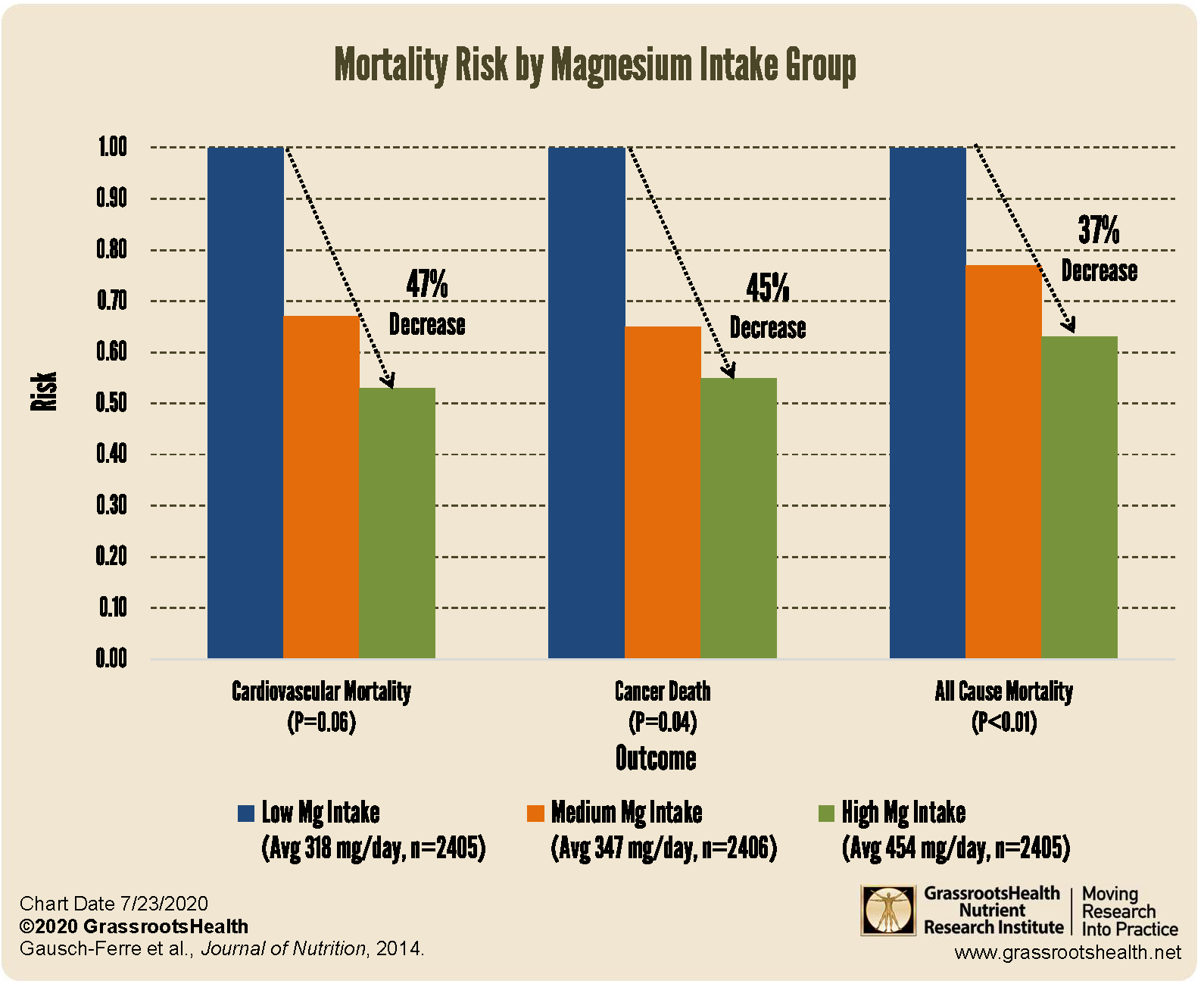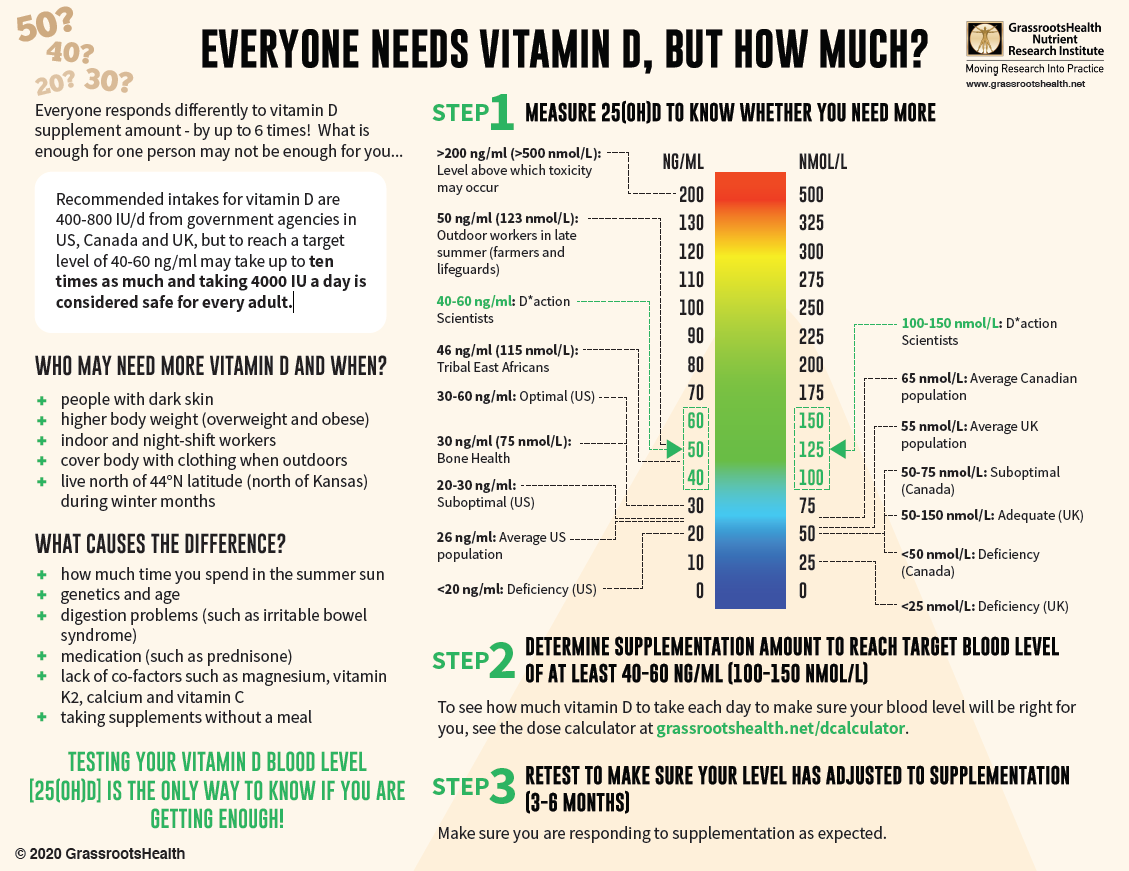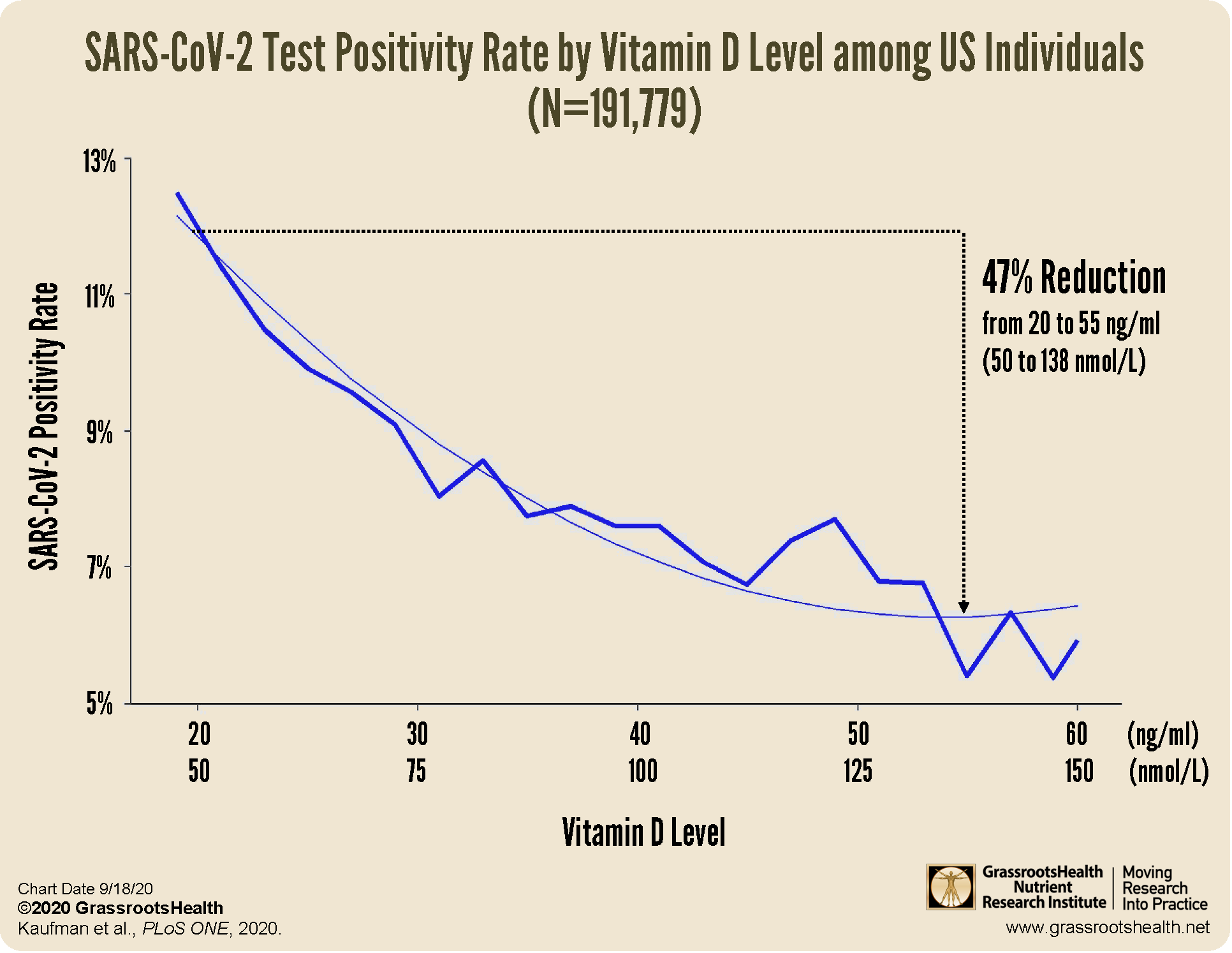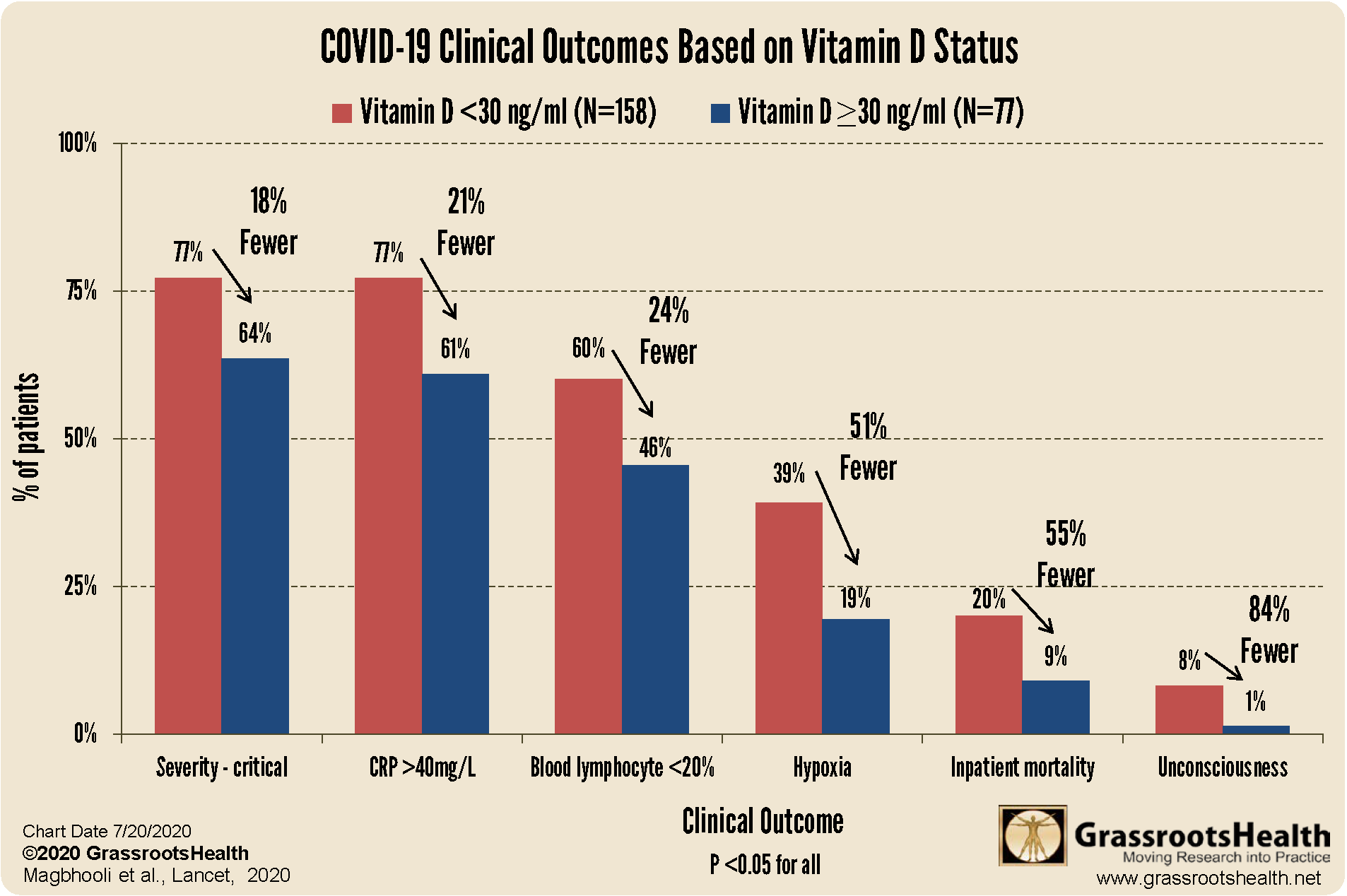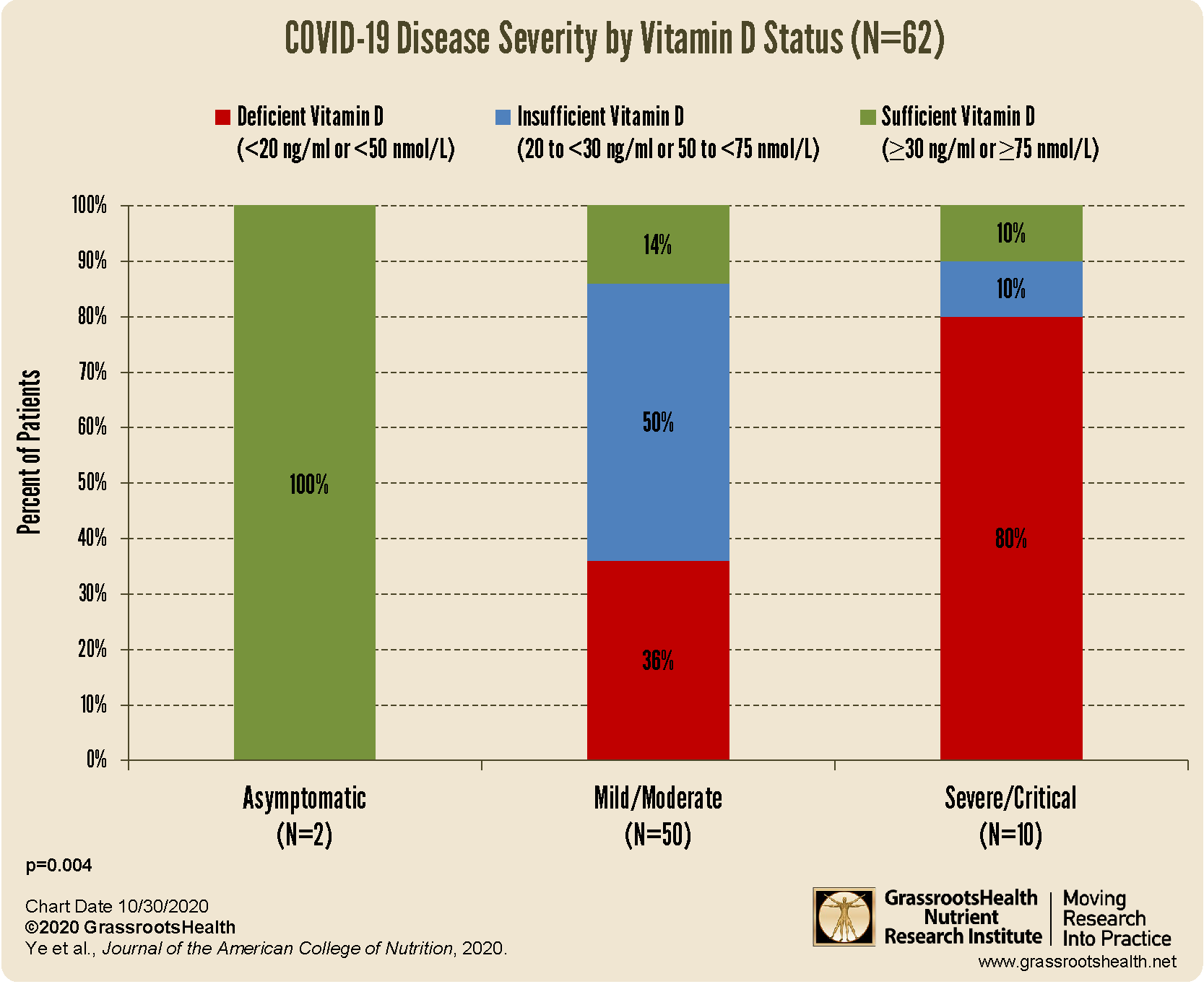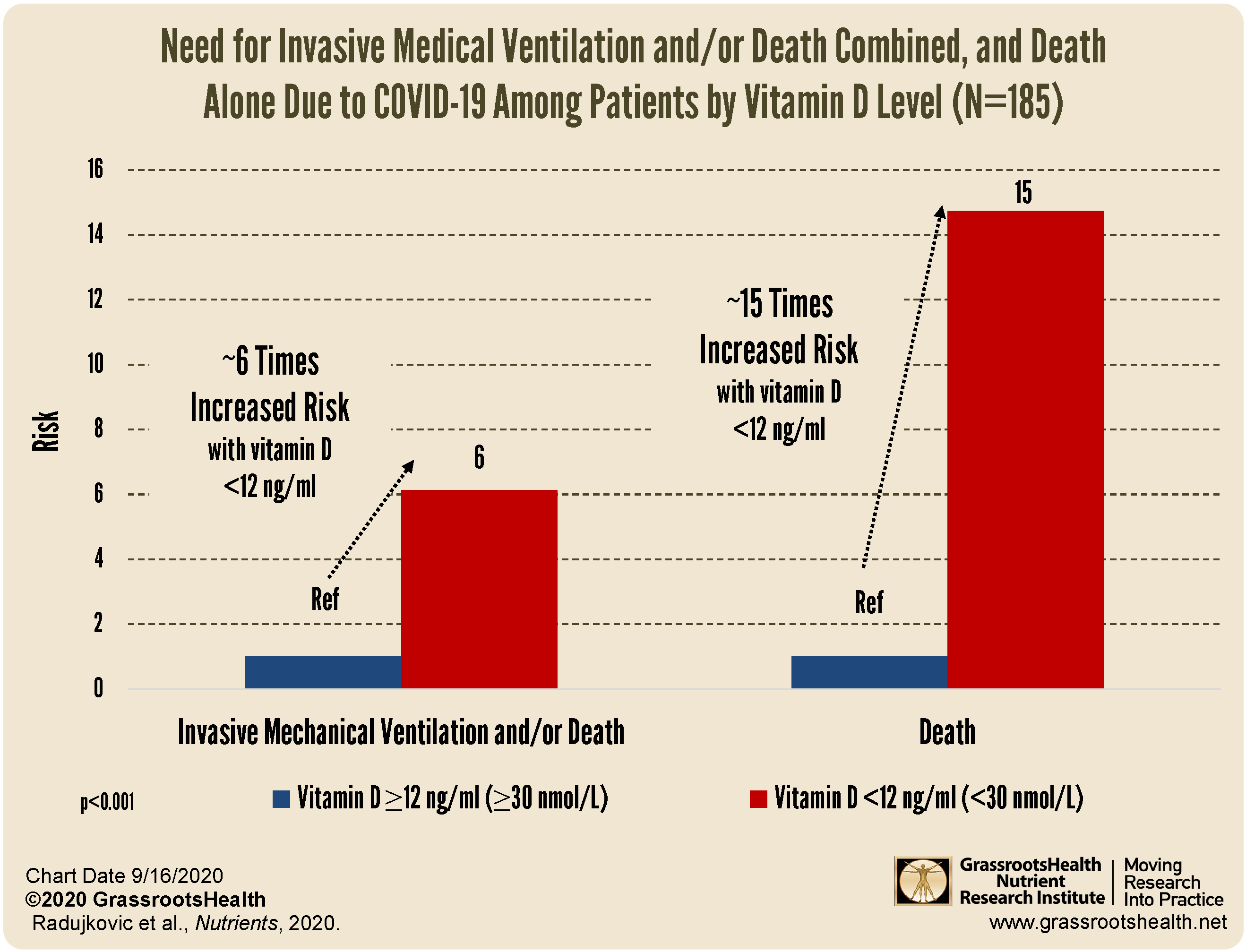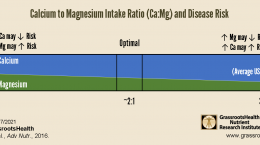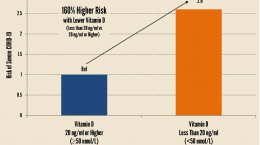Published on February 15, 2021
At least half do not get enough of this important vitamin D co-nutrient, which is critical to the production and utilization of energy and is important for every cell and pathway in the body
 It’s a hard-working nutrient, essential to all cells, and plays an important role as a co-factor for more than 300 enzymes that regulate diverse mechanical reactions. It is critical for energy (ATP) metabolism and is involved in the transfer, storage and utilization of energy. Yet nearly half of all individuals 1 year and older and more than two thirds of teenagers (ages 14-18) and elderly adults (ages 71 and over) in the United States do not get enough of this vital nutrient.
It’s a hard-working nutrient, essential to all cells, and plays an important role as a co-factor for more than 300 enzymes that regulate diverse mechanical reactions. It is critical for energy (ATP) metabolism and is involved in the transfer, storage and utilization of energy. Yet nearly half of all individuals 1 year and older and more than two thirds of teenagers (ages 14-18) and elderly adults (ages 71 and over) in the United States do not get enough of this vital nutrient.
What is Magnesium Good For?
Yes, we’re talking about magnesium! It’s needed for the production of proteins, nucleic acids and neurotransmitters, all important for brain health. It’s intrinsic to bone and tooth structure, calcium and vitamin D absorption, regulation of the cell cycle and stability of cells.
Magnesium also regulates sodium, potassium, proton and calcium transport, all especially important for heart health.
In fact, many studies have shown that magnesium has a strong relationship to cardiovascular health. One previously reviewed study showed how magnesium uses the same pathway as statins to lower LDL cholesterol and raise HDL cholesterol to reduce inflammation, clotting, and plaque formation in the arteries. Another study illustrated how magnesium helps regulate the heartbeat by controlling the sodium potassium pump and extending the relaxation period after contraction, which may help lower the risk of atrial fibrillation, or irregular heartbeat. Adequate intake of magnesium from the diet or supplemental sources is necessary for maintaining cardiovascular health and reducing the risk of cardiac events, even the risk of death due to cardiovascular disease. See the chart below, which shows the difference between cardiovascular outcomes and mortality by magnesium intake; compared to the participants with the lowest magnesium intake, the participants with the highest magnesium intake had a:
- 47% decreased risk of CVD death (P=0.06)
- 45% decreased risk of death from cancer (P=0.04)
- 37% decreased risk of all-cause mortality (P<0.01)
In other words, magnesium is important for every cell and pathway in the body, and not getting enough can lead to major health consequences.
A Few of Magnesium’s Other Benefits:
Mind–Body Power
Magnesium has been shown to improve symptoms of depression and boost energy in everyone from the elderly to athletes.
Fights Diabetes
It can help prevent diabetes and, for Type 2 diabetics, help improve insulin sensitivity.
Other Benefits
Magnesium may also help to improve sleep quality, relieve constipation and alleviate inflammation, muscle aches, pain and migraines. It helps fight osteoporosis, stroke, heart disease, cancer, depression and anxiety, and Alzheimer’s.
Health Effects of Low Magnesium
The effects of low magnesium can include everything from fatigue and loss of appetite, to tremors and muscle cramps. Severe deficiency can cause cardiac arrhythmias. The combination of a healthy diet with supplementation can alleviate and, in some cases, eradicate most health issues related to low magnesium levels.
Why is Magnesium Status So Low?
Some of the culprits affecting magnesium intake include mineral-depleted soil and processed foods. Alcoholism, intestinal malabsorption issues, certain drugs (proton pump inhibitors, ACE inhibitors, diuretics and antimicrobials) and laxatives can also contribute to low magnesium levels.
The form or type of magnesium ingested also affects absorption, with magnesium oxide and magnesium carbonate having a lower absorption compared to other forms, such as magnesium glycinate and magnesium citrate. The level of certain hormones, such as parathyroid hormone and calcitriol (the active form of vitamin D), genetics, and gastro-intestinal problems can also affect magnesium absorption.
How Much Magnesium Do We Need?
Adult dose(s): Four to six milligrams of magnesium per kilogram of body weight per day: on average, 420 mg for males and 320 mg for females. Your health care professional may recommend more.
Foods high in magnesium include dark green vegetables (spinach and broccoli), fruit (avocados and berries), fish, legumes, seeds and nuts.
Make Sure You are Getting Enough TODAY!
Everyone needs vitamin D! Below is a guide for how much you might need, and who may need more. Your levels can be tested safely at home – order your home test kit today.
By joining the GrassrootsHealth projects, you are not only contributing valuable information to our study, but you are also gaining knowledge about how you could improve your own health through measuring and tracking your nutrient status, and educating yourself on how to improve it. Do you know what your status of vitamin D, omega-3s, and other essential nutrients is? Could your levels be improved? Test now to find out!
 We now have a NEW GIFTING SERVICE that allows you to quickly send ‘Gift Cards’ to friends, family and coworkers who you consider might need immediate access to testing, and to Claim the Joy of Your Health TODAY. Give the gift today!
We now have a NEW GIFTING SERVICE that allows you to quickly send ‘Gift Cards’ to friends, family and coworkers who you consider might need immediate access to testing, and to Claim the Joy of Your Health TODAY. Give the gift today!
What does the Research Say about Vitamin D & COVID-19?
It’s TIME to start saving lives! If you can help PREVENT the majority of the death, it’s time! What’s it costing you/us not to take action NOW?
There is much published research that supports a clear link between vitamin D and COVID-19 showing that higher vitamin D levels are related to:
a decreased risk of testing positive for COVID-19
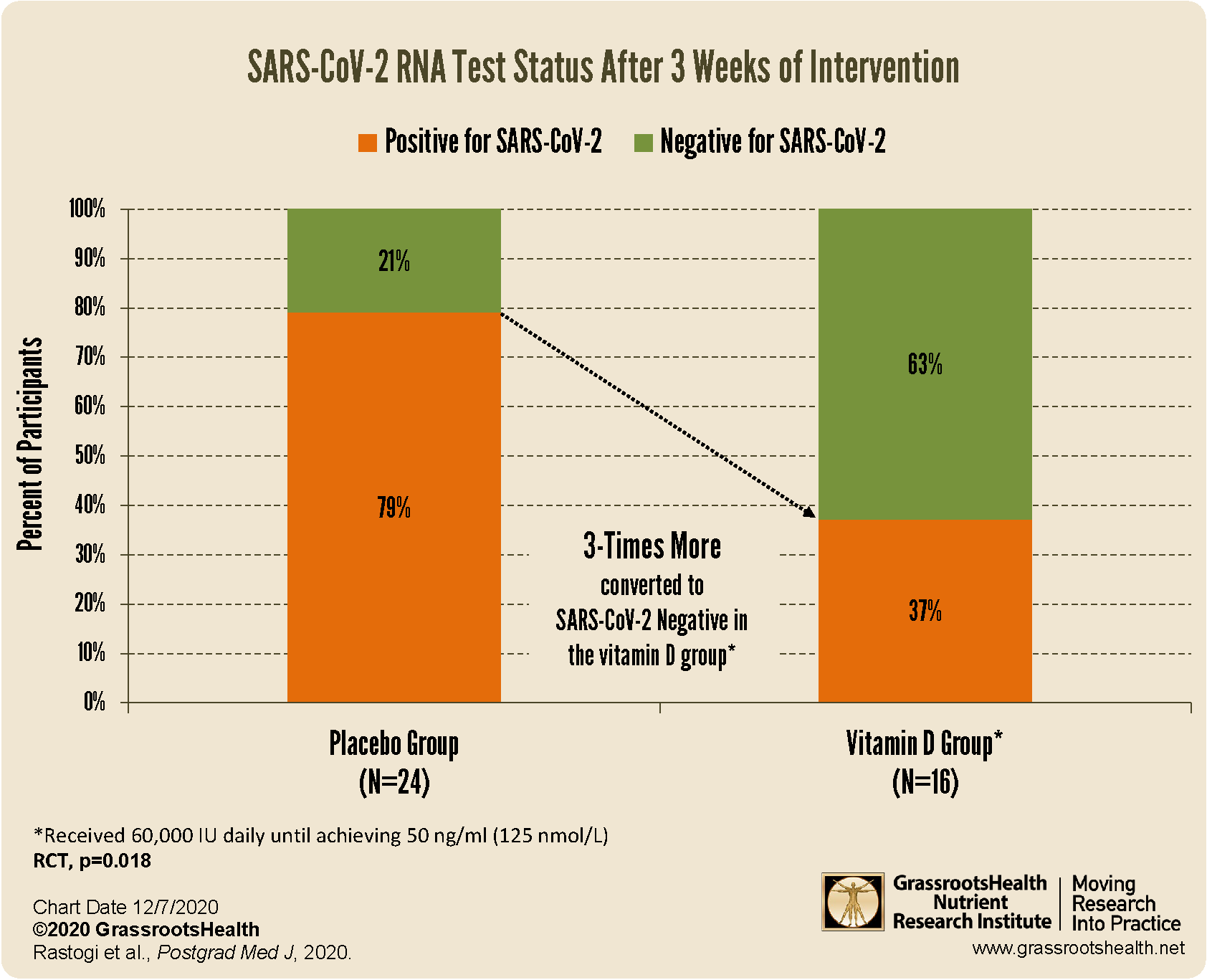 increased viral SARS-CoV-2 RNA clearance
increased viral SARS-CoV-2 RNA clearance
better clinical outcomes among patients with COVID-19
decreased risk of death due to COVID-19
Be sure to educate yourself on the benefits and importance of vitamin D for immune health, and take steps to ensure you and your loved ones are getting enough.
You can review all of the COVID-19 and immune health information we have shared on this page.


